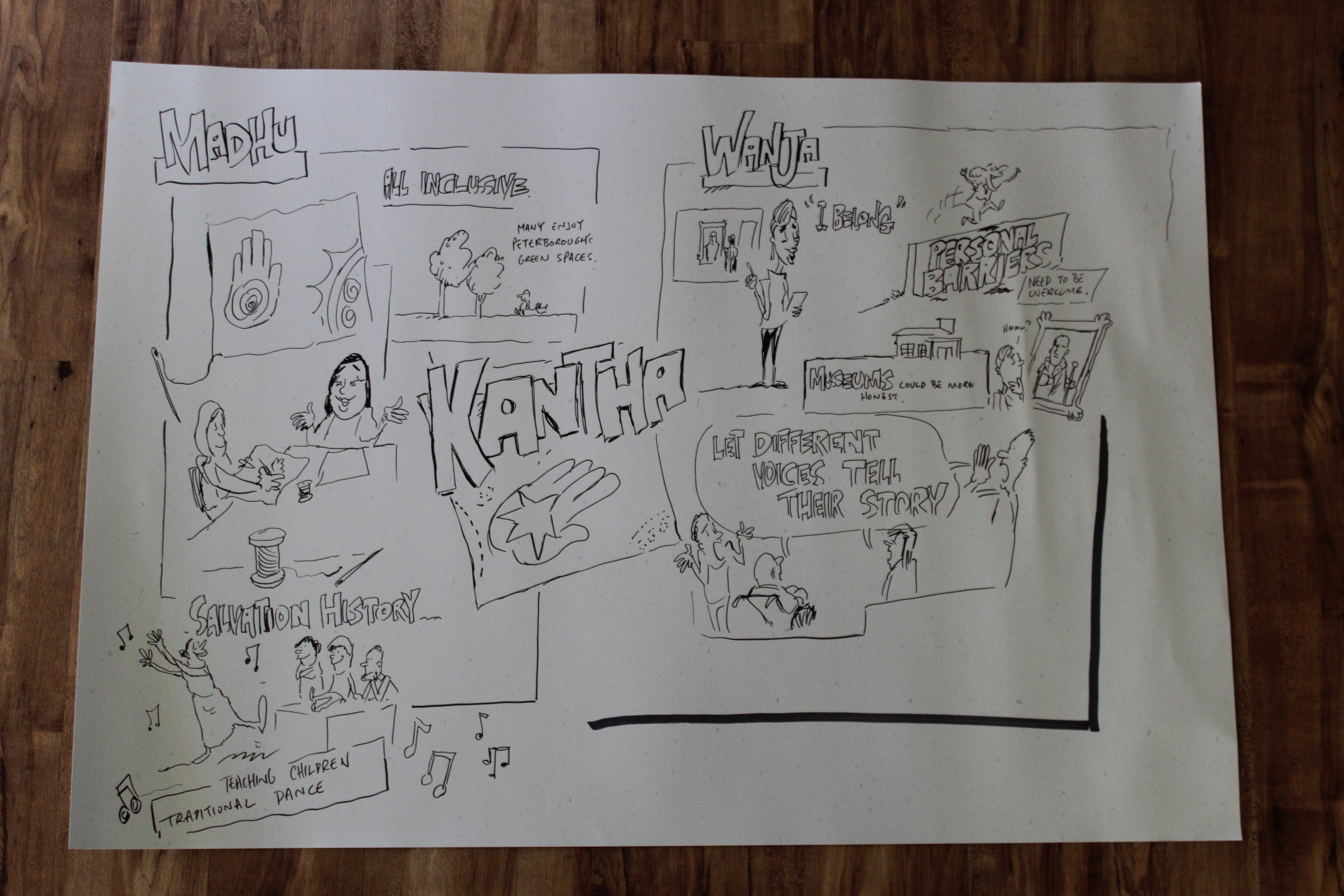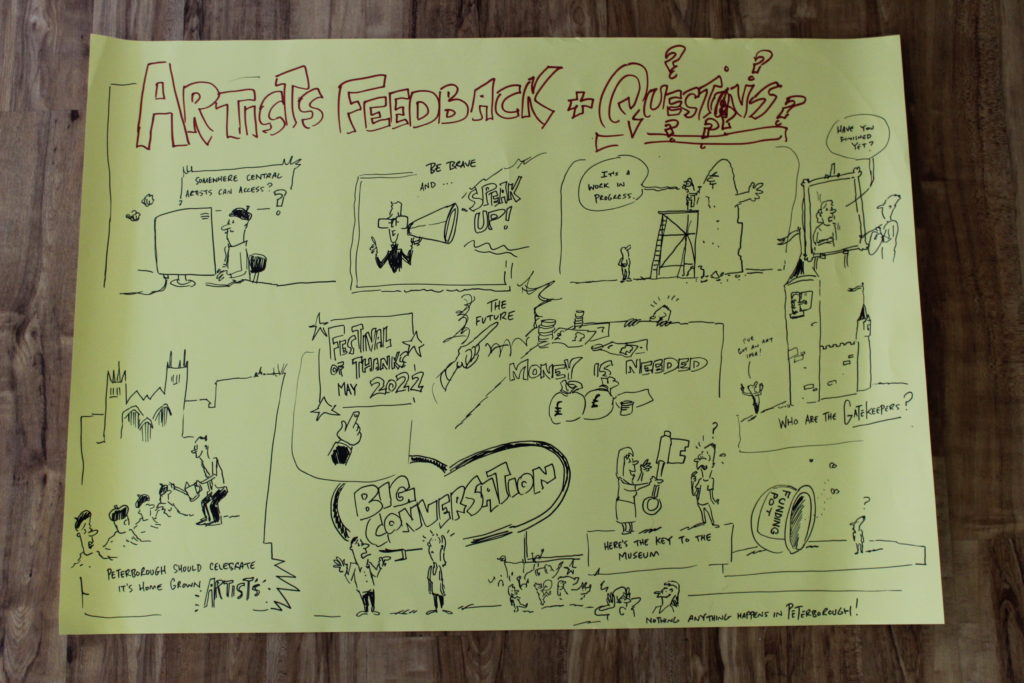On the 1st of July the artists and steering group came together to discuss their findings and recommendations, we asked local artist John Elson to document this day, you can find the drawings he made and our summary of recommendations below.



Summary of artists recommendation
We have created a summary of the recommendations, joining together shared findings from the various conversations the artists had. However, these should be read alongside the individual reports from each artist. Their specific and nuanced reflections are linked specifically to their chosen areas of research.
- The cultural sector needs to celebrate the cultural diversity of the city region. Working hand in hand with excluded or marginalised communities to amplify their voice and showcase their distinctive contributions, talents and achievements – the joy and the trauma.
- The cultural sector and its gatekeepers need to share their power and invite the communities they serve to the table to inform decisions, and curate programmes to ensure relevance
- Greater partnership working needs to happen across the city region to build access, capacity and tolerance – who are the stakeholders that are currently missing from the conversations?
- Volunteers and the voluntary sector are the backbone of the local cultural sector. Greater acknowledgement, support and resources should be given to the voluntary sector, and increased opportunities to work in partnership with the funded/professional sector to build capacity and ambition
- We need to offer and support a broader range of spaces where cultural activity could take place and cross-cultural connection can happen. These may be borrowed, repurposed, pop-up or dedicated but they need to be safe, hospitable and accessible. On occasion, this may require them to be ‘exclusive’ e.g. women only, ‘dry’ spaces where alcohol not sold, or hyper-local in neighbourhoods/villages where communities live and already meet. Reaching new audiences may require a shift away from the city centre
- The many festivals celebrating the diasporic communities in the city (Italian Festival, Portuguese Festival, Diwali, etc) offer welcomed opportunities to share cultures, stories and traditions with others. If more generic festivals are proposed they should include and celebrate all communities e.g. HERITAGES festival and offer collaborative programming opportunities
- All agree that marketing and communications around the cultural offer needs to improve significantly, but it should be more than events listings. It’s also important to profile local talent (the work of individuals and organisations based in city) and support the voluntary and community sectors to extend their reach to new audiences.
- Engagement with young people needs to cut across all plans. Creating opportunities for them to inform decisions through power sharing, influence programming and be supported to run their own events seems key to nurturing the talent development pipeline, retaining talent and building future leaders/workforce in the creative industries
- Whilst sorting out public transport (particularly in the evenings) may not be in the gift of this strategy, we need to consider its impact on engagement for specific communities – the young, the older, the rural etc. Could the offer of transport be built into budgets for city centre activity or hosting in non-centre settings?
- Access needs to be at the heart of all audience development and participation plans, and go far beyond physical access to consider all the barriers to engagement, asking ‘who is not in the room’ and why?
- Supporting and nurturing local artists is key to growing the talent pool and creating an environment to build a sustainable career. Where appropriate, commissions and residencies should be awarded to local artists; and where they don’t have the skills there should be opportunities put in place for dialogue with visiting artists, supported peer networks, training or mentoring
- We need to celebrate our assets. Internationally significant work made in Peterborough (whether sustainable farming practices or artist/makers work) has a high profile elsewhere and disseminated at conferences, exhibitions and touring etc. But has no profile locally or is never offered an opportunity to show at local venues.
- Peterborough should explore the opportunities for international partnerships through its diasporic communities, creating points for connection and exchange between artists e.g. linking to studios or collectives in Poland, Portugal, Pakistan etc
- We face a growth in intolerance, hate crime and racism. The arts and culture can change lives and challenge opinions. The strategy must have an inclusive approach and challenge itself for unconscious bias.
- Given the climate emergency and the city’s aspirations, the delivery of culture should not impact negatively on the environment. Projects and festivals exploring the arts and environment would be welcomed.
- The definitions of ‘culture’ as understood and used within communities (faith, beliefs, identity, inheritance, geographies etc) goes far beyond the arts and heritage and this should be acknowledged.
- The rural communities are overlooked, misrepresented and mythologised as much as any other marginalised community, and should be prioritised for engagement by institutions as much as other areas.
- Ambition – ‘to represent the contemporary lived experience of all its residents’









